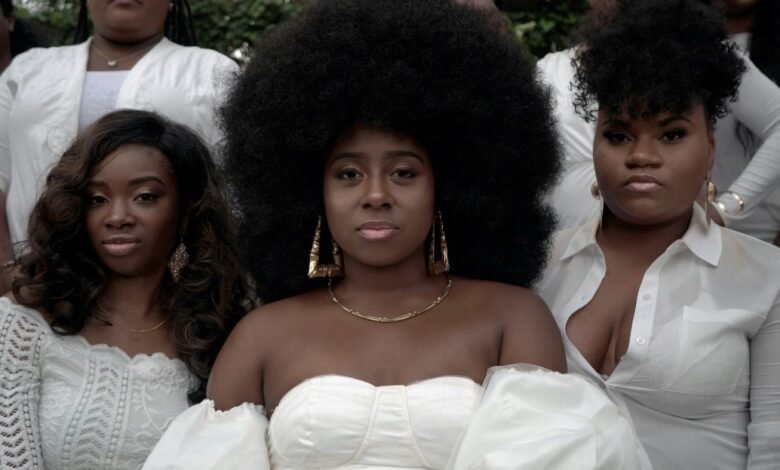Are Black Women More Vulnerable To The Threat of Breast Cancer?

As the healthcare industry continues to grow with new technological advancements, the threat of cancer remains undefeated. This ominous disease – which often changes the lives of its victims forever – is undeterred in the face of modern treatment.
What’s even more surprising is that despite the rate of some cancer forms declining in older people, among younger people, they’re ticking upwards. Among some of the cancer types that are on the rise among people below 50 are prostrate, endometrial, colorectal, cervical, and breast cancer.
When it comes to breast cancer – the most commonly diagnosed cancer among women in the US – black women happen to be the worst victims. The American Cancer Society notes that black women below 50 diagnosed with breast cancer are twice as likely to die as their white counterparts.
That is bound to paint a grim picture of reality among black women. Today, we’re to dig deeper into this disparity and figure out why black women are more vulnerable to breast cancer.
Black Women And Breast Cancer – Is There A Link?
Exploring the relationship between black women and breast cancer reveals a stark picture of disparities. We’ve already established that black women are more likely to face a breast cancer diagnosis at younger ages. What’s even worse they also contend with more aggressive forms of the disease compared to their peers of different racial backgrounds.
Mayoclinic reveals that triple-negative breast cancer – commonly known as “basal-like breast cancer” – has a higher rate among black women. The most aggressive form of breast cancer, it typically occurs in women at a younger age.
It is also insensitive to hormones like progesterone and estrogen, which makes it all the more difficult to treat. It accounts for 35% of the total breast cancer diagnoses among black women and has poor survival and high recurrence rates.
Genetic factors contribute significantly to these trends. Studies highlight that certain genetic mutations linked to breast cancer, such as BRCA1 and BRCA2, are more prevalent among black women, influencing disease severity and treatment outcomes.
Beyond genetics, socioeconomic barriers pose formidable challenges. Limited access to high-quality healthcare, disparities in screening practices, and unequal treatment options all contribute to poorer breast cancer outcomes within this demographic.
What’s worse is that it’s not just about biology and access to healthcare. Cultural beliefs and historical contexts also shape healthcare-seeking behaviors. A large population of black women still see the medical system with mistrust.
This mistrust stems from the historical injustices the preceding generations have faced in healthcare. As a result, it continues to deter them from seeking timely medical care or participating in screening programs that could detect breast cancer early.
What’s the Best Defense of Black Women Against Breast Cancer?
When it comes to protecting ourselves against breast cancer, especially for black women who face higher risks, taking proactive steps can make a difference. Staying active, keeping a healthy weight, and cutting down on alcohol – all of these things can lower our chances of getting breast cancer.
Another step is catching it early. Even though there are challenges like not always having easy access to screenings, it’s crucial to push for regular mammograms and clinical breast exams. Early detection can spot breast cancer when it’s small and easier to treat, which can mean better outcomes and higher survival rates.
We’ve also got to stay on top of our breast density. If your breasts are dense, it can be harder to see tumors on a mammogram. That’s why some women might need extra screening like an MRI or ultrasound to make sure nothing is missed.
The Looming Threat of Hair Relaxers
In the ongoing battle against breast cancer, hair relaxers have emerged as an unexpected threat. For many black women, these products are a staple in their beauty regimen, transforming curly hair into sleek, straight styles. However, beneath the promise of manageable hair lies a troubling risk.
Recent investigations have shed light on the serious health dangers lurking in some hair relaxers. A detailed report by Reuters revealed that these products contain harmful chemicals like formaldehyde and phthalates. These ingredients, found in popular brands such as L’Oréal, are linked to hormone disruption and cancer.
Over time, these chemicals can penetrate the scalp, potentially leading to serious health issues.
The response from the public has been powerful. Across the United States, women are taking legal action against manufacturers. According to TorHoerman Law, the lawsuits claim that prolonged use of these products contributed to their breast cancer diagnoses.
The hair relaxer lawsuits are not just legal battles; they represent a growing movement demanding accountability from cosmetic companies.
Do Hair Relaxers Make Women Vulnerable to Other Cancer Types?
Yes, they do. Beyond the threat of breast cancer, these hair straightening products have also been linked to uterine cancer.
Dr. Onyinye D. Balogun, a radiation oncologist at NewYork-Presbyterian Brooklyn Methodist Hospital, discusses the presence of endocrine-disrupting chemicals in these products.
These substances interfere with the body’s hormone systems, leading to various health issues, including an increased risk of uterine cancer.
Dr. Balogun also notes that women who use hair relaxers frequently are at a higher risk of developing this type of cancer compared to those who don’t.
The chemicals of concern, such as formaldehyde and phthalates, are used for both straightening hair and preserving the product. When applied, these chemicals can be absorbed through the scalp and enter the bloodstream, potentially causing long-term health effects.
Read also: A Guide to Choosing Authentic Dry Food for Puppies from Online Retailers
What is the Food & Drug Association (FDA) Doing About It?
The rising awareness of the potential dangers lurking in hair relaxers has cast a spotlight on the FDA and its role in regulating these products.
Historically, the FDA has faced sharp criticism for not adequately protecting consumers from harmful chemicals hidden in many cosmetic items, including hair relaxers. However, it seems the winds of change are starting to blow.
Recently, the FDA has begun to take meaningful steps to address these pressing concerns. One significant move on the horizon is the proposed ban on the use of formaldehyde in hair relaxers.
Formaldehyde, a well-known carcinogen, has been linked to severe health risks, including cancer. The FDA’s plan to eliminate this dangerous chemical is a crucial stride toward making hair relaxers safer for everyone.
This ban, long overdue, acknowledges the growing body of evidence underscoring formaldehyde’s harmful effects.
As the awareness of the uneven threat of breast cancer among black women grows, addressing it becomes inevitable for healthcare organizations. While things might not change overnight, slowly but steadily, we will find a solution that ensures this disparity no longer exists.




